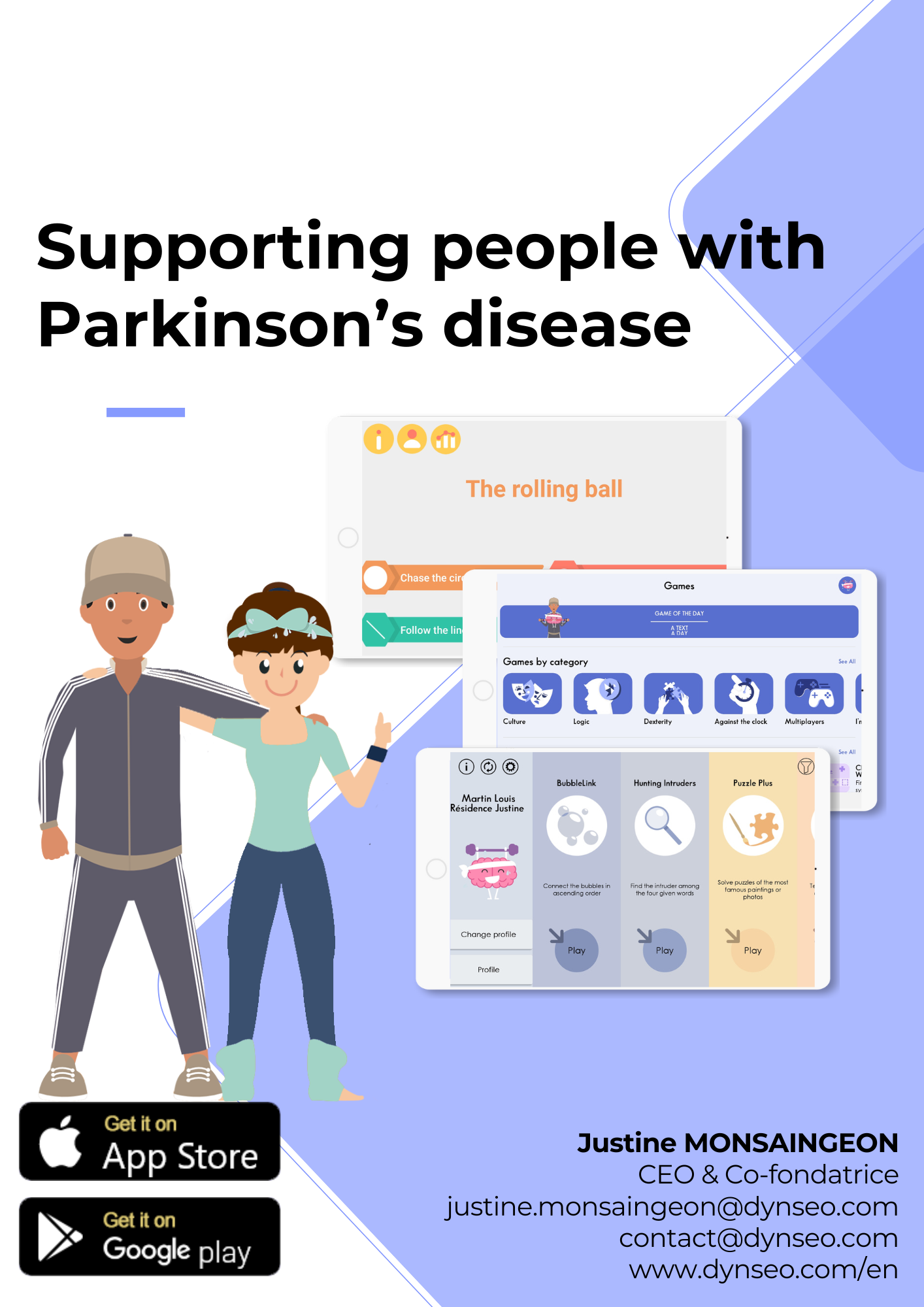Sleep disorders in PD are pervasive and multifaceted, often manifesting as insomnia, restless legs syndrome (RLS), excessive daytime sleepiness (EDS), rapid eye movement (REM) sleep behavior disorder (RBD), and sleep-related breathing disorders. These disturbances not only exacerbate motor symptoms but also contribute to cognitive impairment, depression, and overall functional decline.
Managing sleep disorders associated with PD requires a comprehensive approach that addresses both motor and non-motor symptoms. Treatment strategies may include pharmacotherapy, behavioral interventions, exercise regimens, and sleep hygiene practices tailored to individual needs. By understanding the intricate interplay between PD and sleep disturbances, healthcare professionals can better optimize treatment outcomes and enhance the overall well-being of patients living with this challenging condition.
Understanding Parkinson’s Disease
Parkinson’s Disease (PD) stems from the progressive degeneration of dopaminergic neurons in the substantia nigra region of the brain, leading to a deficit in dopamine production. This neurotransmitter deficiency disrupts the intricate balance of motor control, resulting in characteristic symptoms like tremors, rigidity, and bradykinesia. However, beyond its motor manifestations, PD also profoundly affects the neurological mechanisms regulating sleep. The degenerative process extends beyond the substantia nigra, impacting other brain regions crucial for sleep regulation, such as the hypothalamus and brainstem. Consequently, individuals with PD often experience a myriad of sleep disturbances, including insomnia, REM sleep behavior disorder (RBD), and restless legs syndrome (RLS).
Understanding the intricate interplay between the pathophysiology of PD and its neurological impact on sleep is paramount for developing effective management strategies to enhance the quality of life for patients living with this challenging condition.
Types of Sleep Disorders in Parkinson’s Disease
Sleep disorders exert a profound impact on individuals with Parkinson’s Disease (PD), significantly influencing their overall health and well-being. These disturbances disrupt normal sleep patterns, leading to fragmented and insufficient rest, which, in turn, contributes to heightened daytime fatigue, impaired concentration, and diminished productivity. Moreover, sleep disorders in PD often exacerbate existing motor symptoms, complicating daily functioning and mobility. Understanding the multifaceted impact of sleep disturbances is crucial for implementing holistic management strategies that address not only motor symptoms but also non-motor aspects of PD, ultimately enhancing the quality of life for patients living with this complex neurological condition.
Quality of Life Implications
The presence of sleep disorders in Parkinson’s Disease (PD) exacts a significant toll on patients’ quality of life. Sleep disturbances disrupt normal sleep-wake cycles, leading to chronic sleep deprivation, daytime fatigue, and impaired functioning in daily activities. Individuals with PD often report decreased overall satisfaction with life, reduced social engagement, and limitations in participating in leisure activities due to sleep-related difficulties. Addressing these quality of life implications requires a comprehensive approach that integrates both pharmacological and non-pharmacological interventions to alleviate sleep disturbances and improve overall well-being.
Cognitive Functioning
Sleep disorders in Parkinson’s Disease (PD) have profound implications for cognitive functioning. Chronic sleep disturbances, such as insomnia and REM sleep behavior disorder (RBD), are associated with cognitive impairment, including deficits in attention, memory, and executive function. Disrupted sleep architecture and decreased sleep efficiency contribute to cognitive decline and may accelerate the progression of cognitive impairment in individuals with PD. Moreover, sleep disorders further complicate the management of cognitive symptoms, posing challenges for both patients and caregivers.
Recognizing the intricate relationship between sleep and cognitive functioning is essential for developing targeted interventions aimed at preserving cognitive health and optimizing outcomes for patients with PD.
Motor Symptoms Aggravation
Sleep disorders in Parkinson’s Disease (PD) not only disrupt sleep architecture but also exacerbate motor symptoms, posing significant challenges for patients. Sleep disturbances such as insomnia, restless legs syndrome (RLS), and REM sleep behavior disorder (RBD) often lead to increased nocturnal awakenings and fragmented sleep, resulting in daytime fatigue and worsened motor function. Inadequate restorative sleep can exacerbate bradykinesia, rigidity, and tremors, making it difficult for individuals with PD to perform activities of daily living.
Moreover, the interplay between sleep disturbances and motor symptoms creates a vicious cycle, where motor symptoms disrupt sleep, and sleep disturbances aggravate motor symptoms, further compromising overall function and independence. Recognizing and addressing the impact of sleep disorders on motor symptoms are crucial for optimizing treatment outcomes and enhancing the quality of life for patients living with PD.
Diagnosis of Sleep Disorders in Parkinson’s Disease
Diagnosing sleep disorders in Parkinson’s Disease (PD) requires a comprehensive approach that encompasses clinical assessment, sleep studies, and screening tools. Clinical assessment involves a thorough evaluation of the patient’s medical history, including sleep patterns, medication use, and comorbid conditions that may contribute to sleep disturbances. Additionally, conducting a physical examination can help identify motor symptoms and other factors affecting sleep quality. Sleep studies, particularly polysomnography, play a crucial role in objectively assessing sleep architecture, identifying abnormalities in sleep stages, and detecting specific sleep disorders such as REM sleep behavior disorder (RBD) or sleep-related breathing disorders.
Complementing these diagnostic modalities are screening tools and questionnaires designed to assess the frequency and severity of sleep disturbances, providing valuable insights into patients’ subjective experiences and guiding treatment decisions tailored to individual needs. Integrating these diagnostic approaches enables healthcare professionals to accurately identify and address sleep disorders in PD, ultimately improving patients’ overall well-being and quality of life.
Treatment Approaches
Treatment approaches for sleep disorders in Parkinson’s Disease (PD) encompass a diverse range of options aimed at improving sleep quality and managing symptoms effectively. Pharmacological interventions involve the use of medications such as dopamine agonists, sedatives, or antidepressants to address specific sleep disturbances like insomnia, restless legs syndrome (RLS), or REM sleep behavior disorder (RBD). However, non-pharmacological interventions play a crucial role in comprehensive management strategies, including lifestyle modifications, sleep hygiene practices, and physical activity regimens tailored to individual needs. Cognitive Behavioral Therapy for Insomnia (CBT-I) offers a structured, evidence-based approach to address maladaptive sleep behaviors and cognitive processes contributing to insomnia.
Additionally, light therapy has emerged as a promising intervention for regulating circadian rhythms and improving sleep-wake cycles in individuals with PD. By combining pharmacological and non-pharmacological interventions, healthcare professionals can optimize treatment outcomes and enhance the overall well-being of patients living with PD and sleep disorders.
Lifestyle Modifications and Sleep Hygiene
Lifestyle modifications and sleep hygiene practices play a pivotal role in managing sleep disorders in individuals with Parkinson’s Disease (PD). Exercise regimens, tailored to the individual’s capabilities and preferences, not only promote physical health but also contribute to better sleep quality by reducing motor symptoms, alleviating stress, and enhancing mood. Additionally, maintaining a balanced diet rich in nutrients and low in stimulants like caffeine and alcohol can support healthy sleep patterns and overall well-being.
Optimizing the sleep environment involves creating a comfortable and conducive atmosphere for rest, including regulating room temperature, minimizing noise and light exposure, and establishing a consistent bedtime routine. By incorporating these lifestyle modifications and implementing effective sleep hygiene practices, individuals with PD can enhance their sleep quality, improve daytime functioning, and better manage the challenges associated with sleep disturbances.
Caregiver Role and Support
The caregiver’s role in supporting individuals with Parkinson’s Disease (PD) extends beyond physical assistance to encompass emotional support and understanding. Caregiver burnout, a common concern, arises from the constant demands of caregiving, including managing medications, assisting with daily activities, and navigating the challenges of sleep disturbances. Understanding caregiver burnout involves recognizing the signs of emotional and physical exhaustion, such as increased stress, fatigue, and feelings of isolation. Support groups and resources tailored to caregivers provide invaluable opportunities for sharing experiences, accessing information, and receiving emotional support from others facing similar challenges. Moreover, implementing sleep management strategies for caregivers, including prioritizing self-care, establishing boundaries, and seeking respite care when needed, can mitigate the impact of caregiving stress on sleep quality and overall well-being.
By prioritizing caregiver support and implementing effective sleep management strategies, caregivers can better navigate the demands of caregiving and enhance their ability to provide compassionate and sustainable care to individuals with PD.
Emerging Therapies and Research
Emerging therapies and research hold promise in advancing the treatment landscape for Parkinson’s Disease (PD), offering hope for improved symptom management and disease modification. Deep Brain Stimulation (DBS), a surgical intervention involving the implantation of electrodes in specific brain regions, has emerged as a promising approach for alleviating motor symptoms and enhancing quality of life in individuals with advanced PD. Novel pharmacological approaches focus on targeting underlying disease mechanisms, such as alpha-synuclein aggregation or neuroinflammation, to develop more effective and disease-modifying treatments.
Furthermore, gene therapy and stem cell research represent innovative avenues for restoring dopaminergic function and promoting neuronal survival in PD. These emerging therapies and research endeavors underscore the ongoing commitment to advancing our understanding of PD pathophysiology and developing transformative treatments that offer hope for a brighter future for individuals living with this complex neurological condition.
Challenges and Future Directions
As we navigate the complexities of managing Parkinson’s Disease (PD), several challenges and future directions emerge that warrant attention and exploration. Adherence to treatment plans poses a significant challenge, as individuals with PD may encounter barriers such as medication side effects, cognitive impairment, or logistical difficulties. Moreover, addressing comorbidities, including psychiatric disorders, cardiovascular disease, and gastrointestinal disturbances, presents additional complexities that require comprehensive management strategies tailored to each patient’s unique needs. Furthermore, identifying and addressing research gaps and opportunities remains paramount in advancing our understanding of PD pathophysiology and developing more effective treatments.
By fostering collaboration among researchers, clinicians, and patients, we can leverage emerging technologies, innovative therapies, and interdisciplinary approaches to address the multifaceted challenges of PD management and pave the way for improved outcomes and enhanced quality of life for individuals living with this chronic neurological condition.
Managing sleep disorders in Parkinson’s Disease (PD) requires a multifaceted approach that considers the interplay between motor and non-motor symptoms. Key points highlighted include the prevalence and diverse manifestations of sleep disturbances in PD, ranging from insomnia to REM sleep behavior disorder. Addressing these challenges necessitates a holistic approach encompassing pharmacological interventions, lifestyle modifications, caregiver support, and emerging therapies. Recognizing the importance of a holistic approach underscores the need to consider not only symptom management but also the broader impact on quality of life and overall well-being.
Amidst the challenges, there is hope for better sleep management in PD, driven by ongoing research efforts, advancements in treatment modalities, and the collective commitment to improving outcomes for individuals living with this complex neurological condition. By embracing a comprehensive and patient-centered approach, we can strive towards enhancing sleep quality and ultimately improving the lives of those affected by PD.
AND FOR FURTHER INFORMATION

SCARLETT, EASY MEMORY GAMES FOR PARKINSON
SCARLETT is a user-friendly memory game program that offers a collection of simple yet engaging exercises, specifically designed to gently enhance memory skills. No timer, no score and no failure. Just the pleasure of playing. Try it for free for one week.

CLINT, A CHALLENGING BRAIN GAMES APP
For individuals seeking a more challenging experience, the CLINT program serves as a more demanding version, offering complex memory games that require greater cognitive effort, making it suitable for those in need of a more strenuous mental workout.

THE ROLLING BALL TO WORK ON FINE MOTOR SKILLS
The Rolling Ball app is an innovative tool designed to enhance fine motor skills through engaging and interactive challenges. By guiding a virtual ball through intricate mazes and obstacles, users can improve their precision, control, and hand-eye coordination.
Other articles that might interest you:
How Parents Can Contribute to Teacher Training
As we delve into the realm of education, it becomes increasingly clear that teacher training is not merely a...
Differentiated Instruction Approaches: Training and Practical Application
Differentiated instruction is a pedagogical approach that recognizes the diverse needs of students in a classroom. It...
Key Skills Teachers Need to Support Students with Special Needs
As we embark on our journey to support children with special needs, it is essential for us to cultivate a deep...








